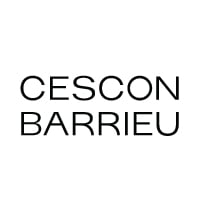

Legal director and company secretary | Vivo (Telefônica Brasil)



Breno Rodrigo Pacheco de Oliveira
Legal director and company secretary | Vivo (Telefônica Brasil)
How do you approach managing legal aspects during periods of instability or crises, and how does your legal strategy align with the broader business strategy to ensure the organisation´s resilience?
One of the most important aspects in the increasingly complex and dynamic corporate world, and especially fundamental in times of instability or crisis, is the correct and timely identification of the real problem or opportunity that presents itself for the in-house lawyer’s judgement.
This may seem simple and obvious at first glance. However, on many occasions it is not something that is easily and immediately realised, especially when it comes to matters that require legal attention and treatment. As a rule, in their day-to-day work, in-house lawyers are faced with the need to assess a scenario made up of multiple important factors that have repercussions on each other, which makes it even more difficult to identify what may in fact be the transforming core for resolving the entire unfavourable scenario or even be the trigger for the necessary change of course that will result in the generation and promotion of the desired opportunities.
I consider this to be one of the most important characteristics for in-house counsel, because, as a rule, the issues (problems, risks, opportunities, and so on) are not presented clearly. Often, only “slices” of a situation are shared for assessment. Therefore, I believe it is essential—and I make it a daily discipline—to ensure that the first and most fundamental step for any in-house lawyer to begin their work competently and efficiently is to confirm that they are aware of and have access to all the necessary information. Otherwise, it is necessary to broaden one’s perspective—even if that requires investing valuable initial time (which I don’t consider “wasted,” but rather “invested”)—not just to see the snapshot initially presented, but to understand and assess the entire “film,” examining the full context, including legal, economic, market, and reputational aspects, in order to take the most appropriate actions to achieve the intended goals.
I enjoy using parallels and comparisons to make concepts easier to grasp. In this case, a purely illustrative and hypothetical analogy involves the medical field. Here, the in-house lawyer can be likened to a trusted family doctor—someone who knows their patient (the company) extremely well, along with the environment in which they operate (industry, competitive landscape, economic, political, and social contexts), and the patient’s medical history (the company’s trajectory, product and service evolution, culture, management, people, and stakeholders).
I believe that this type of work begins with accurately and promptly identifying the “disease”—specifically, its root causes, not just its symptoms—bearing in mind that not every illness presents symptoms (just as not all corporate issues are visible, though they may still be very real). This approach allows for the appropriate treatment plan to be developed, whether it be preventive, surgical, ongoing, or even permanent impacting the routines and future path of the company itself.
With this generalist profile, the in-house lawyer is equipped—so long as they approach their role with diligence and awareness—to identify real issues and address them, directly or indirectly, with the support of legal specialists (either internal colleagues or external counsel), as well as professionals from other disciplines, depending on the topic at hand. To be clear, I use the term “generalist” not to refer to someone with only a basic or superficial understanding of many topics, but rather someone who leverages broad and comprehensive knowledge across diverse legal fields, diving deeper into those areas that are most relevant and useful in their day-to-day work. This depends on the company they serve and may also include complementary knowledge in areas like accounting, finance, and others, thereby enhancing their skill set and enabling more efficient and well-rounded performance.
Ultimately, by establishing their role with this competence, the legal leader becomes truly essential to the organisation – recognised as a safe harbour – for dialogue and a trusted partner in seeking solutions across a wide range of issues, including those requiring urgent and critical decision-making, particularly during times of crisis and instability.
Legal director and company secretary | Vivo (Telefônica Brasil)
Secretary general and General Counsel | Vivo
Breno Rodrigo Pacheco de Oliveira has spent over 16 years with telecommunications giant Vivo – which is Spanish multinational Telefônica’s presence in Brazil. Leading Vivo’s legal team, a function comprising...